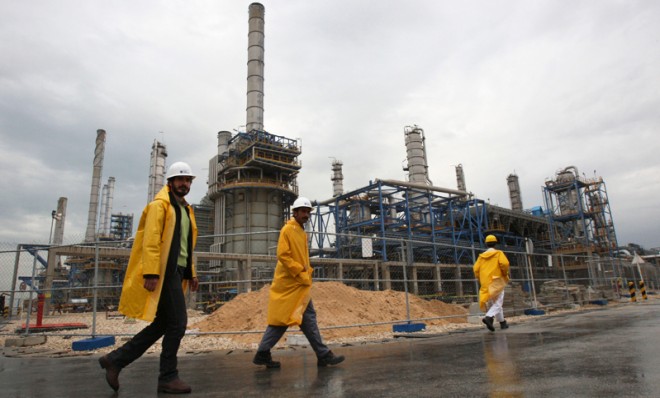What would happen if the U.S. banned all Iranian oil?
Congress is considering harsher sanctions that could squeeze Iran out of the global oil market

A free daily email with the biggest news stories of the day – and the best features from TheWeek.com
You are now subscribed
Your newsletter sign-up was successful
Iran holds the fourth-largest proven oil reserves in the world, behind Canada, Saudi Arabia, and Venezuela. In a bid to halt Iran's suspected nuclear weapons program, some members of Congress want to make sure none of that oil reaches the rest of the world.
The plan, according to The Washington Post, is to present other countries with an ultimatum: Stop buying oil from Iran, or lose access to the U.S. banking system.
"If we're talking about things that could really hurt the Iranian economy, at the top of the list is taking their oil off the market," a Senate aide involved with the proposed legislation told The Washington Post.
The Week
Escape your echo chamber. Get the facts behind the news, plus analysis from multiple perspectives.

Sign up for The Week's Free Newsletters
From our morning news briefing to a weekly Good News Newsletter, get the best of The Week delivered directly to your inbox.
From our morning news briefing to a weekly Good News Newsletter, get the best of The Week delivered directly to your inbox.
Iran's oil-dependent economy has already been hammered by heavy sanctions. Last month, Bloomberg reported that Iranian officials were looking to boost non-oil exports in the face of a 50 percent drop in oil exports — much of it due to Western-led sanctions.
Experts disagree on what harsher sanctions would do to global oil markets. One solution proposed by Sen. James Inhofe (R-Okla.) would establish "Iranian Oil Replacement Zones" on U.S. soil to replace the 1.25 million barrels of oil per day that would be lost if the ban were passed, reports The Hill.
Supporters of the plan have been citing a study co-authored by Roubini Global Economics and Securing America's Future Energy (SAFE) that says slow economic growth in Europe and increased oil production in Iraq have actually led to a global surplus equivalent to most or all of the oil exported by Iran today, according to The Washington Post.
However, U.S. lawmakers still have the problem of appeasing some of Iran's very powerful trade partners: China, Japan, India, and South Korea. "The goal is to put pressure on Iran, not to pick fights with trading partners," a senior administration official told the Post.
A free daily email with the biggest news stories of the day – and the best features from TheWeek.com
According to The New York Times, talks in Afghanistan last month between the P5-plus-1 — the five members of the U.N. Security Council, plus Germany — and Iran resulted in no progress, with Iranian President Mahmoud Ahmadinejad declaring that his country would actually increase uranium production in the future.
Keith Wagstaff is a staff writer at TheWeek.com covering politics and current events. He has previously written for such publications as TIME, Details, VICE, and the Village Voice.
-
 6 of the world’s most accessible destinations
6 of the world’s most accessible destinationsThe Week Recommends Experience all of Berlin, Singapore and Sydney
-
 How the FCC’s ‘equal time’ rule works
How the FCC’s ‘equal time’ rule worksIn the Spotlight The law is at the heart of the Colbert-CBS conflict
-
 What is the endgame in the DHS shutdown?
What is the endgame in the DHS shutdown?Today’s Big Question Democrats want to rein in ICE’s immigration crackdown